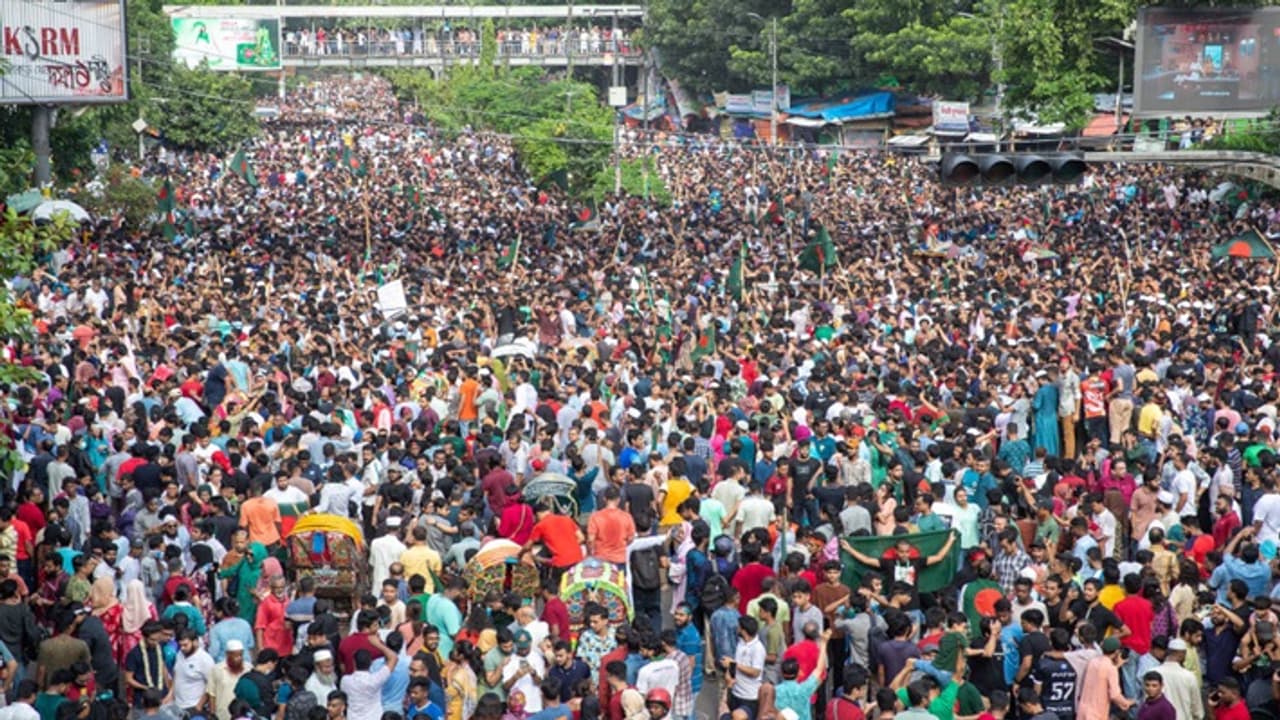Bangladesh’s minorities face escalating violence under Muhammad Yunus’s interim rule, marked by deliberate state inaction, police complicity, judicial silence. This systemic neglect threatens regional stability, demanding urgent global intervention.
By Ashu Maan
Communal violence in Bangladesh has escalated, not only due to isolated failures but because of a pattern of state inaction and institutional silence under the Muhammad Yunus-led interim government. The core argument of this analysis is that the state’s deliberate neglect—rather than mere governance lapses—constitutes a calculated complicity that empowers perpetrators and undermines the security of minorities.
The Anatomy of State Neglect
The most damning evidence of state complicity lies not in what the Bangladesh government does, but in what it deliberately chooses not to do. When Priyonthi Chatterjee’s father, retired schoolteacher Mrinal Kanti Chatterjee, was brutally killed in Bagerhat Sadar Upazila in August 2024, his daughter made a chilling revelation: “My parents called the police and army but none of them answered the calls”. This single statement encapsulates the systematic abandonment of minorities by Bangladesh’s security apparatus.
The Politics of Denial and Deflection
The interim government’s response to the staggering 2,442 incidents of communal violence documented between August 2024 and June 2025 reveals a sophisticated strategy of institutional gaslighting. By labelling these attacks as “politically motivated” rather than communal, the Yunus administration has effectively legitimised religious persecution under the guise of political vendetta.
This semantic manipulation serves a dual purpose: it absolves the state of its constitutional obligation to protect minorities while simultaneously providing legal cover for continued attacks. When Muhammad Yunus dismisses minority persecution as “exaggerated propaganda,” he is not merely downplaying statistics; he is denying the lived reality of terror experienced by 20 million religious minorities.
The case of Chinmoy Krishna Das, the Hindu religious leader arrested on sedition charges for advocating minority rights, illustrates how the state machinery is weaponised against those who dare to speak for the persecuted. His detention without adequate legal representation, no lawyer in Bangladesh dared represent him due to threats from Islamist groups, demonstrates how fear has become institutionalised within the judicial system itself.
Police as Silent Spectators
The role of the Bangladesh Police in this crisis extends beyond mere negligence to active complicity through deliberate inaction. In numerous documented cases, including the Aldadpur village attacks in Rangpur district, police arrived at the scene only to justify the violence by claiming blasphemy allegations were “proven”. This represents a fundamental perversion of law enforcement’s role, from protectors of citizens to validators of mob justice.
The Economics of State Silence
The interim government’s silence on minority persecution serves multiple constituencies that benefit from communal violence. Land grabbing, which, according to the Bangladesh Hindu Buddhist Christian Unity Council, accounts for 70-75% of violence against minorities, thrives in an environment where state agencies are either complicit or deliberately absent.
International Consequences and Regional Implications
Bangladesh’s descent into state-sanctioned communal violence carries profound implications for regional stability and international relations. The systematic persecution of minorities under a Nobel Prize laureate’s leadership represents a particularly damaging blow to Bangladesh’s international credibility. India’s repeated expressions of concern and the growing international spotlight on minority persecution signal that Bangladesh’s internal crisis is rapidly becoming a regional security issue.
The interim government’s defensive reactions to international criticism, including accusations that India is interfering in Bangladesh’s internal affairs, reveal a leadership more concerned with managing optics than addressing the underlying crisis of communal violence.
Final Thoughts
The tragedy of Bangladesh’s minority crisis lies not in isolated incidents of violence but in the systematic erosion of state institutions that should protect all citizens regardless of their religious identity. When police refuse to answer distress calls from minority families under attack, when government officials dismiss documented persecution as political theatre, and when the judiciary fails to provide equal protection under law, the state becomes complicit in the very crimes it is constitutionally bound to prevent.
The silence of Bangladesh’s interim government in the face of mounting evidence of communal violence represents more than policy failure; it constitutes a betrayal of the foundational principles upon which Bangladesh was established. Until this silence is broken and state institutions are compelled to fulfil their protective mandate, the minorities of Bangladesh will continue to face an existential crisis that threatens not only their immediate safety but their very future in the land of their birth.
The international community must recognise that what is unfolding in Bangladesh is not merely a series of unfortunate incidents but a systematic campaign of state-enabled persecution that demands urgent intervention before it escalates into a full-scale humanitarian catastrophe.
(Ashu Mann is an Associate Fellow at the Centre for Land Warfare Studies. He was awarded the Vice Chief of the Army Staff Commendation card on Army Day 2025. He is pursuing a PhD from Amity University, Noida, in Defence and Strategic Studies. His research focuses include the India-China territorial dispute, great power rivalry, and Chinese foreign policy.)
Disclaimer: The opinions expressed are solely those of the author and do not reflect the views or stance of the organization. The organization assumes no responsibility for the content shared.
